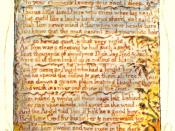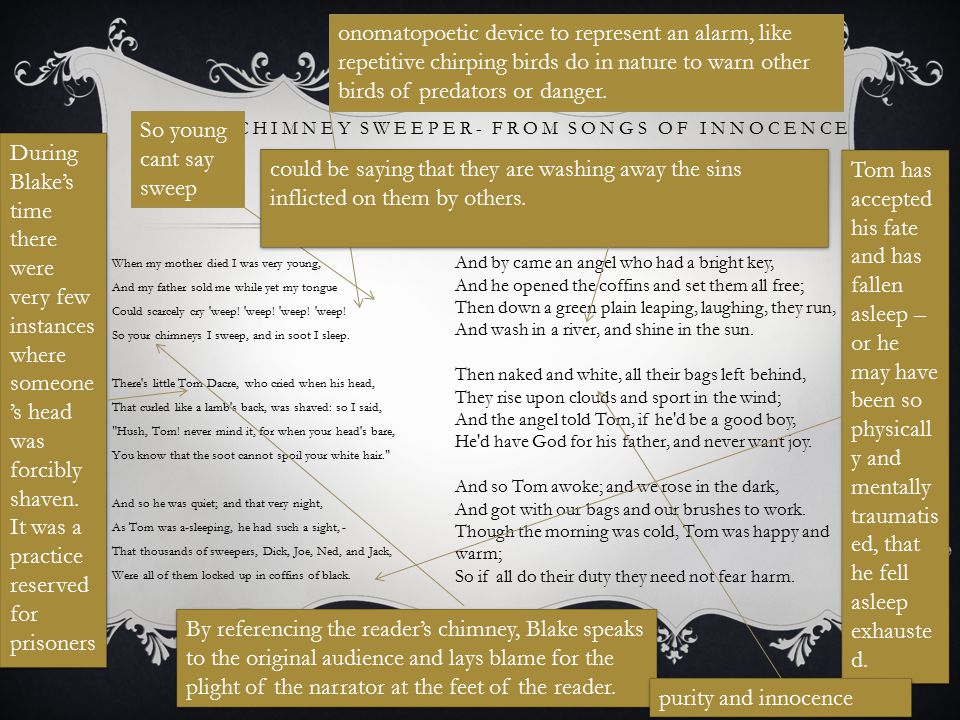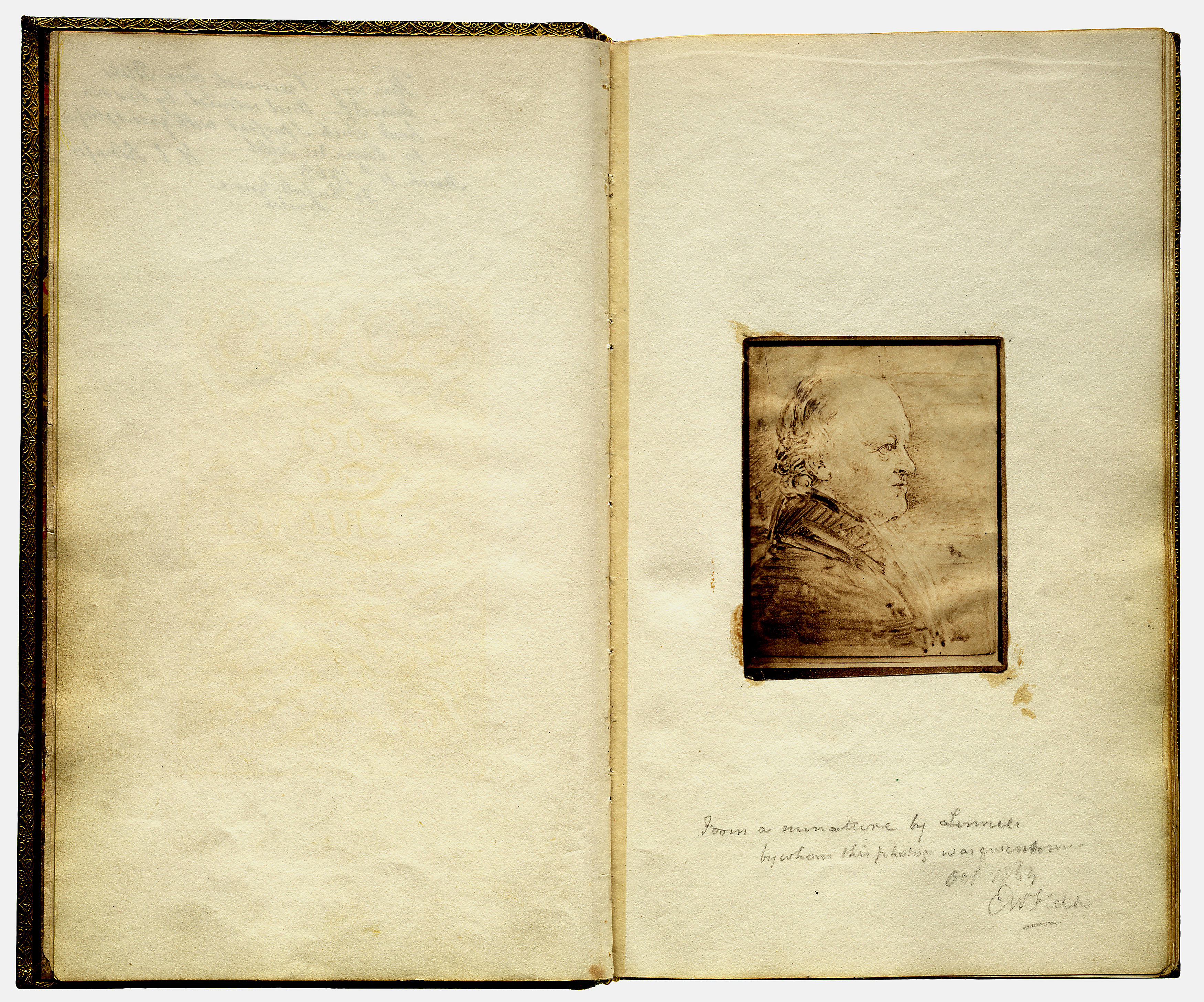William Blake The Chimney Sweeper Sparknotes
This poem was written by William Blake a popular English poet.
William blake the chimney sweeper sparknotes. So your chimneys I sweep and in soot I sleep. Theres little Tom Dacre who cried when his head. Songs of Experience The Chimney-Sweeper.
Theres little Tom Dacre who cried when his head. It was first published in 1789. Speak father speak to your little boy Or else I shall be lost.
A significant figure to the Romantic period William Blake is Oca-kfc National Essay Contest High School best known for his poetry. Popularity of The Chimney Sweeper. Songs of Innocence The Chimney-Sweeper.
The Chimney Sweeper is de titel van twee gedichten van de Engelse schrijver dichter en beeldend kunstenaar William Blake. Weep So your chimneys I sweep in soot I sleep. Weep in notes of woe.
The poem is told from the perspective of a young chimney sweep a boy who has been sold into labor by his father. It led to urbanisation and thus slums child. The children had to survive and earn their livelihood by sweeping chimney at a very young age during the time of William Blake.
Holy Thursday Songs of Innocence. The night was dark no father was there The child was wet with dew. The Chimney Sweeper is a poem by William Blake published in his 1789 collection Songs of Innocence.
The Little Black Boy. Fathers and mothers symbolizes those responsible for taking care of children be it the church the king or adults in general. The chimney sweeper symbolizes the plight of Englands children chimney sweeper was a horrible job done by children because they were small enough to fit in the chimney and clean it.
Previous sectionSongs of Innocence The Chimney-SweeperNext sectionSongs of Innocence The Little Boy Pound. Annons Av William Blake - Låga priser snabb leverans. When my mother died I was very young And my father sold me while yet my tongue.
The Chimney Sweeper is a popular poem on account of its theme of poverty and the life of the working children. The poem The Chimney Sweeper from Songs of Experience by William Blake brings into light the animal-like condition of children during the 17th and 18th-century era. A modern alternative to SparkNotes and CliffsNotes SuperSummary offers high-quality study guides that feature detailed chapter summaries and analysis of major themes characters quotes and essay topics.
Could scarcely cry Weep. Het eerste gedicht stamt uit de in 1789 gepubliceerde bundel Songs of Innocence het tweede gepubliceerd in het deel Songs of Experience verscheen in 1794. Because I was happy upon the heath And smiled among the winters snow They clothed me in the clothes of death And taught me to sing the notes of woe.
The Chimney Sweeper present in both Songs of Innocence and Songs of Experience are heart wrenching pieces of poetry written by Blake to shed light upon the oppression that the underage children went through just so that the greedy so-called upper class members of the society and their money-hungry parents who sold them off could exploit their innocence and labor to suit their needs. The Chimney Sweeper by William Blake. Holy Thursday Songs of Experience.
The Chimney Sweeper a poem of six quatrains accompanied by William Blakes illustration appeared in Songs of Innocence in 1789 the year. The sweep meets a new recruit to the chimney sweeping gang named Tom Dacre who arrives terrified. Summary and Analysis.
William Blakes The Chimney Sweeper is a two-part poem about a few chimney sweeps in late eighteenth-century England. It was the time when the Industrial Revolution took place. The mire was deep and the child did weep And away the vapour flew.
Beide series gedichten werden gezamenlijk gepubliceerd onder de titel. Where are thy father and mother. The poem comprises the agony of children who were forced to live a miserable life.
When my mother died I was very young And my father sold me while yet my tongue. Say They are both gone up to the church to pray. Annons Av William Blake - Låga priser snabb leverans.


















